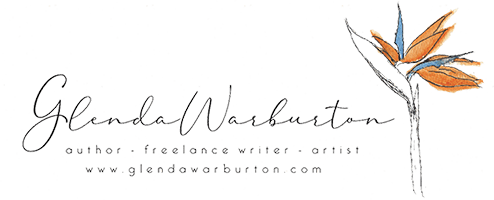You Can’t Beat the Bush!
5 April 2023A Tale of Two Worlds
15 May 2023I love the end of the day, that time when I can slow down, draw breath, watch the sun head off to another day on the other side of the planet, and wait for the Lord to switch on the stars.

The other night the sky was blood red, the sun a tunnel of light in the midst of it and the old adage came unbidden to mind: red sky at night, shepherd’s delight. As with so many sayings, it originates in England, where the weather systems come predominantly from the west. Where I live, on the eastern side of Southern Africa, this is not a factor, as our weather generally comes from the Indian Ocean to the east, and a southern system from the equator to the north.
I wondered if my Shepherd, my Jesus, was delighted.
I have been researching for a novel I am writing set in the 1980’s, a turbulent and bloody decade in the history of this region. As a journalist at that time, I was privy to more of what went on than many of my friends. In fact, most of my white friends look at me in amazement when I talk of cross border raids and shootings and assassinations. One said: But I was here, I don’t remember any of that.
How? How did you not notice when headlines screamed the atrocities in bold 64-point banners? I am astounded that anyone could have been oblivious to the terror, the mayhem that was part and parcel of everyday life.

Such was the power of the propaganda that was assiduously fed by the Nationalist government of the day in South Africa: the Communist threat, the Yellow Peril, ‘die Swart gevaar” trumpeted out on a daily basis that such happenings were considered acceptable. Or was it because it was an underground war, against “them”, them being the blacks, so it didn’t really matter if they got killed.
This blindness of many of my tribe to the injustices of the past continues today. They react venomously against movements such as #blacklivesmatter, seeing it as a racial affront, a threat and thus a cause for righteous indignation and reactive anger, instead of the cry for recognition of a bitter past that it is. Musi Maimane put it well when he said: If you don’t see that I am black, you don’t see me.
We can pretend we don’t have prejudice, that we “don’t see colour”, but until we live as if we do see colour and are able accept our differences and still be friends, we are living in a past of separation and suspicion, where hurt cannot heal.
As I looked at that red sky, my thoughts were unable to move away from my research, the tales of unspeakable horror, savagery, cruelty; and then the sadness and trauma that families went through as husbands, children, wives were shot in cold blood, blown up in cars, or parcel bombs, or simply disappeared never to be seen again.
I felt the horror and helplessness of those days reach forward and surround me. Accounts recorded in page after awful page of the Truth and Reconciliation Commission, newspaper articles, our shame so entrenched, so unacknowledged, whether we actively participated, or are guilty by our nonchalance towards the unjust suffering of fellow men.
Some even turn blame back on the people that we so harshly abused, refusing to understand their pain, seeking still to dominate and belittle because “their” standards are not our standards. Everyone should read Barbara Kingsolver’s epic, The Poisonwood Bible, where the arrogance of white domination is so wonderfully exposed.
It came home to me once more how astonishing domination of man by man is wherever it occurs. When a state, through its own punitive laws, empowers its citizens to destroy those they fear, allows cruelty and injustice to flourish, condones it, we are no better than the barbarians we claim our vanquished to be.
In little more than a decade 62 people were killed in my home country of Swaziland, now Eswatini, in the name of that justice. I believe the figure could be higher. At one time the bloodshed was such that the blocks of flats adjoining Swaziland’s industrial area was referred to as “Little Lebanon”, a place where children became inured to stepping over bodies as they left for school in the mornings.
And many didn’t notice? Don’t remember? Black lives did not matter. But they should have.
It is atonement for these actions that is sought today. We need to search for a deep and intimate understanding of the wrongs that were perpetrated regardless of whether we, personally, were responsible for any of them. It is beholden on each of us to actively participate in finding a way to make amends, to bring about a better future. For everyone.
There is no justification for what was done, no trying to turn blame with “but they did this, or they say that!” No! We did. We are guilty for what we did or did not do, regardless of what “they’ did or did not do. And we need to do a whole lot better if we are truly to progress in this glorious Africa, we all love so dearly.
My God, in Whom I seek refuge, reminds me of all He has done for me, how much I’ve been forgiven, and says: Can you not do this for others?
The reading I did in Lectio 365 this morning directed me to the prophet Amos, Chapter 5:
V12 For I know your manifold transgressions and your might sins; afflicting the just and taking bribes, diverting the poor from justice at the gate.
v13, therefore the prudent keep silent at that time, for it is an evil time
V15 Hate evil, love good; establish justice in the gate….
Red sky at night, shepherd’s delight – my prayer is that the Shepherd of my soul, who made the ultimate sacrifice, His life for ours, will give us the grace, the courage, the love to acknowledge the wrongs of the past.
To continue with Amos 5, v 24:
But let justice run down like water, and righteousness like a mighty stream.
May the God many profess to serve enlighten our hearts, bring the repentance and perspective that can bring healing and allow us to go forward with the dignity of all restored. May we, who profess to follow this man Jesus, be big enough to take the first steps!
Bible verses from the New King James Version.
